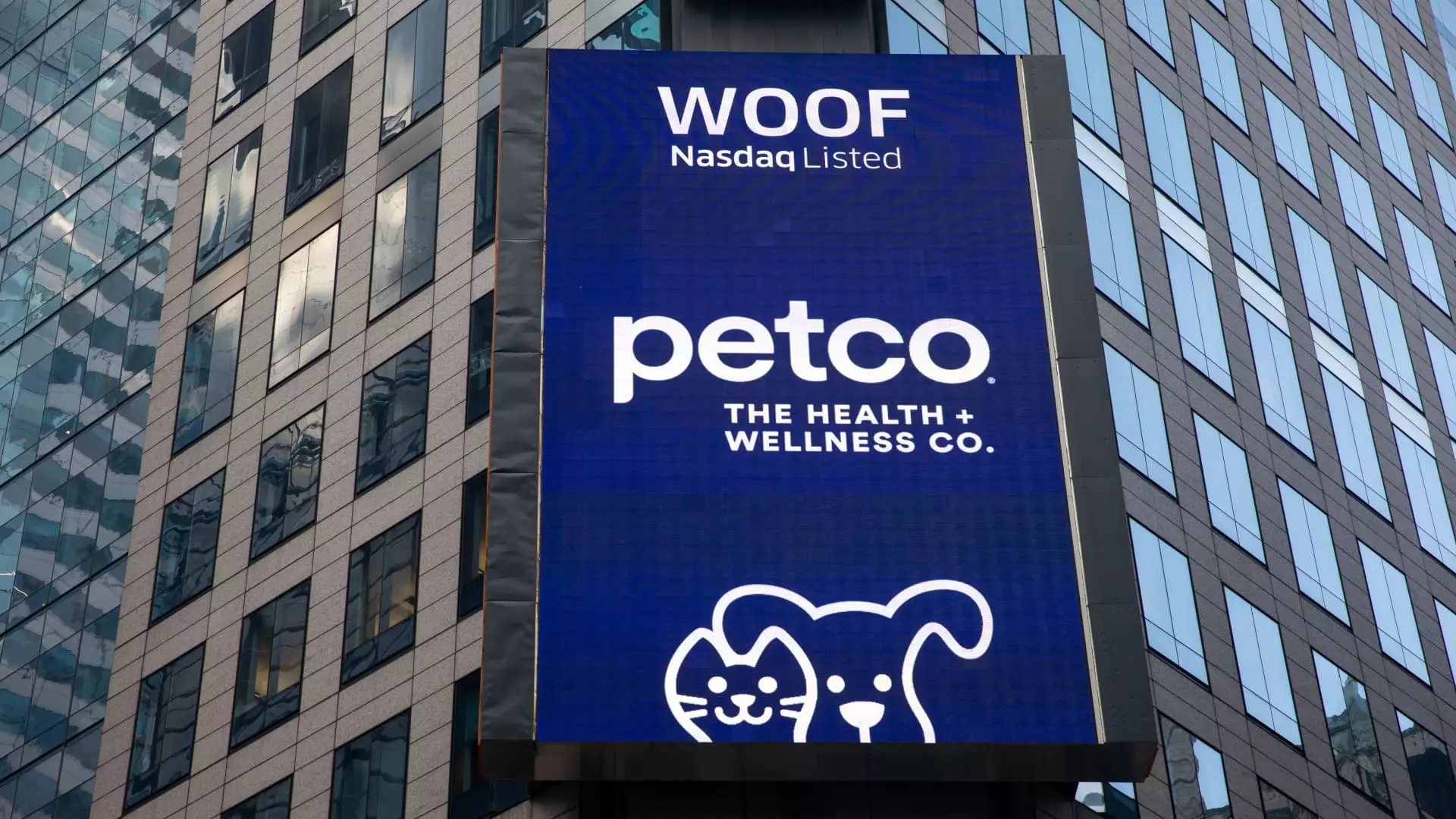The recent announcement from Petco about CEO Ron Coughlin stepping down has sent shockwaves through the industry. Board member and Best Buy executive R. Michael Mohan will be taking over as interim chief executive while the company searches for a permanent replacement. This move comes as Coughlin will transition to serving as an advisor to the board to support the leadership change. In his statement, Coughlin expressed pride in the work he has done over the past five years, highlighting the tremendous change and growth he has helped navigate.
Alongside the CEO change, Petco also reported its fiscal fourth-quarter results. The earnings per share came in at 2 cents adjusted, matching expectations, while the revenue reached $1.67 billion, slightly surpassing the anticipated $1.62 billion. Despite these results, the company reported a net loss of $22.6 million for the quarter, a stark contrast from the net income of $32.7 million reported a year prior. Sales saw a boost to $1.67 billion, marking a 6% increase from the previous year.
Investors seemed to react positively to the news, with Petco’s shares rising as much as 9% in premarket trading following the CEO change and earnings report. However, Coughlin’s decision to step down comes at a time when Petco’s market cap has dwindled over the past year. Despite consistent sales growth and comparable sales gains, the company’s stock has dropped about 19% year to date. This decline is further reflected in the plummet of Petco’s market cap from around $3 billion in February 2023 to $784 million currently.
The pet industry has been facing challenges amidst a demand slowdown following the end of the pandemic-induced pet boom. While record numbers of families adopted pets during the Covid pandemic, the demand for supplies has since slowed down. Retailers like Petco and Chewy saw significant growth during this period, but the new adoption rates have dwindled, impacting high-margin items like beds, leashes, and toys. This slowdown has led to increased pressure within the industry.
Under Coughlin’s leadership, Petco underwent a transformation from a pet retailer to a health and wellness company. Initiatives like discontinuing the sale of unhealthy pet food, removing products like shock collars, and expanding services and veterinary business have been instrumental in this shift. The company rebranded as Petco Health and Wellness Co. in 2020 and went public the following year. By leveraging its widespread brick-and-mortar presence, Petco has established itself as one of the largest pet health providers in the nation, operating 282 full-service hospitals.
As Mohan takes on the role of interim CEO, the focus will be on strengthening Petco’s business, driving profitability through operational efficiency, and enhancing growth to create shareholder value. With an emphasis on executing strategies that improve margins and generate cash flow, Petco aims to navigate the changing dynamics of the pet industry while building on its foundation as a health and wellness-focused entity. The path forward will require careful consideration and strategic decision-making to steer Petco towards sustained success in a competitive market landscape.

Leave a Reply